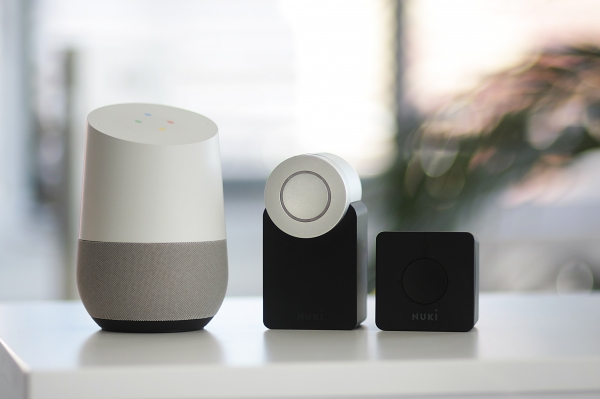What are the biggest marketplace trends in 2022? Here’s all you need to know about changes in the marketplace industry.
Build your online marketplace today!
Benefit from a 7-day free trial, with no obligation or payment card
What are the biggest marketplace trends in 2022? If you’re wondering where the online marketplace industry is headed, you’ve come to the right place. Today, you get the latest insights on online marketplace developments.

Source: Pexels
1. The importance of marketplaces continues to grow
First things first: The growing importance of marketplaces can’t be understated.
Yes, companies like Uber struggle with turning a positive cash flow. But if you look at global marketplace trends, you quickly see that marketplace businesses are here to stay.
Every year, the 18 biggest marketplaces sell $1 trillion worth of goods. And it was estimated that by 2020, marketplaces would account for 40% of the global online retail market.
Not only that- 12% of major retailers operate a marketplace. 32% are considering opening one.
After all, marketplaces offer convenience and trust to customers. No wonder a marketplace like Amazon is the most valuable public company in the world.
2. Marketplaces need a clear niche
Amazon was the first marketplace that made it big. Even Amazon started in a focused niche (books) and grew over time to become a marketplace for all kinds of goods.
Now more than ever, new marketplaces need to narrow their focus to stand out. Think about it this way: Will customers want to use yet another vacation rental site? Probably not. Airbnb already fulfills that need.
But if a marketplace offers something specific, people will see the value. For example, a marketplace for local vacation rental listings or a marketplace that targets a specific audience, like families or disabled travelers.
Now, by narrowing down your niche when you’re first getting started doesn’t mean that you can’t expand later on. In fact, that’s how all the big marketplaces got started, like Airbnb and Uber.
3. Customers will want even more convenience
What’s one of the biggest advantages of the marketplace business model? Easy: Convenience.
Marketplaces give buyers much more choice than most other online stores. This applies both to price and the types of goods offered on marketplaces.
But as online business is getting more convenient than ever, marketplaces need to keep up with this trend. Most ecommerce stores are now integrating features like one-click payments, emails with recommended items and even ways to try out products online.
By using features like instant payments and targeted recommendations, marketplaces can make their platforms even more convenient to consumers and compete with trends in the ecommerce industry.

Source: Pexels
4. A focus on privacy and trust
Right now, privacy is a major issue in tech. With Facebook’s data leaks and a growing concern about how our data is handled and who gets access to it, companies will be more scrutinized than ever.
This also applies to marketplaces. After all, trust is one of the most important aspects of an online marketplace. That’s why this marketplace trend is so important for you as a marketplace business owner.
But how do you make sure you keep up privacy standards on your marketplace?
One way is to use a marketplace website builder that addresses privacy concerns upfront. For example, you’ll need to be able to moderate your marketplace community, offer secure payments, and offer support to answer any privacy concerns.
At Kreezalid, we’ve built a marketplace website builder that’s all about helping you do just that. Take a look at our marketplace features here.
5. AR, VR, and the Internet of Things
What are some of the most exciting technologies right now? That’s right. Augmented Reality (AR), Virtual Reality (VR), and the Internet of Things. And these are some of the most promising marketplace trends.
But will they have an impact on marketplaces? You bet. You see, these technologies will enable even better ways for marketplace users to connect and shop. For example, AR can help customers see how a piece of furniture would look in their home.
But it doesn’t stop there. These technologies will enable better customer service and higher conversion rates.
6. More ways to communicate
Do you already offer email, chat, and possibly phone support as alternatives for customers to get in touch? Great! But considering how many alternative communication methods there already are out there, you’ll probably need to offer even more in the future.
Think about it: People increasingly prefer the comfort and ease of communicating through Facebook Messenger, WhatsApp, and other messaging apps.
But this increase in messaging apps doesn’t just apply to your customer service. In the near future, your users will want simpler ways to communicate with each other.

Source: Pexels
7. Using user data for a better user experience
Marketplaces are all about bringing people together to enable different types of transactions. And using data to facilitate your marketplace community is the way forward.
Just think about it: By using data, you can better match what people are searching for. You can learn exactly what your customers want and develop your marketplace in that direction.
You can also use data to make transactions smoother. For example, by learning about your customer’s preferences, you can tailor personalized suggestions.
However:
Using data comes with its own challenges. As you know by now, privacy and data protection are huge concerns for consumers.
Data should be used responsibly and in accordance with local laws and regulations, like the General Data Protection Regulation (GDPR).
8. Merging online and offline marketplaces
One of the biggest advantages of an online marketplace versus an ecommerce shop is the community you build. Because you offer community, people come back for more.
But what if you could make this an even stronger community? You can, with offline popup events.
You see, one of the leading ecommerce trends is the merging of online and offline experiences. People search and buy products by searching on several different channels. A big chunk of transactions still happen offline, so by tapping into simple solutions like popup events, you can grow your marketplace business AND build a stronger community.
Plus, a popup event is a great place for people to test your products.
Now, what goes into creating a successful popup event? You need to choose a location that gets a lot of foot traffic and promote your event.
A great way to do this is to form partnerships. For example, is there an event in your area that caters your target audience? That’s a good way to partner up and cross-promote your partner.

Source: Unsplash
9. Optimizing your marketplace for voice search
Here’s the thing:
Voice devices like Amazon Alexa and Google Home are growing fast. Already 20% of US consumers are using a voice assistant.
An increasing number of people never type out “google.com” in their browsers. Instead, they ask their voice devices.
As voice devices continue to grow in popularity, the importance of voice devices for marketplaces will only grow.
So, how do you optimize for voice search?
Use these simple tips:
- Use questions in your site content. You might know that to optimize for SEO, you need to use keywords. But people don’t search for keywords when they use their voice devices. Instead, they ask questions. That’s why you should integrate relevant questions in your content.
- Give answers. In the same way that you use questions, you need to provide answers. That’s how voice devices will be able to use your content to answer questions.
- Show how your marketplace can help. Finally, to get people to your marketplace, you need to tell them why your marketplace is the solution. Include that information in your voice search optimized content.

Source: Unsplash
10. Sophisticated marketplaces will thrive
Finally, the marketplace industry is maturing. For example, Airbnb was one of the first marketplace websites. It was one of the first businesses to start implementing marketplace features, which means that it simply didn’t have that many features to implement.
Today, the industry looks a lot different. Marketplaces are getting increasingly sophisticated.
While you don’t want to build an advanced marketplace before you’ve built your Minimum Viable Marketplace, you do need some basic features to get started.
For example, you do need proper user accounts and listings. People wouldn’t buy from you unless you had things like reviews in place.
And there are great marketplace website builders today (something that didn’t exist when Airbnb got started). For example, we’ve integrated a lot of what first-time and more advanced marketplace builders need in our marketplace SaaS platform, Kreezalid.
Want to start your own marketplace?
There you have it. Now you know what the biggest online marketplace trends are in 2019.
Changes in the tech and online business industries are continuing to affect how marketplaces are built and run. And remember: If used in the right way, you can use these trends to build your marketplace even faster.
Want to get started already today? Sign up for a free 14-day trial of our marketplace builder, Kreezalid.

